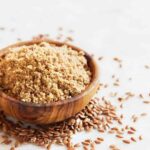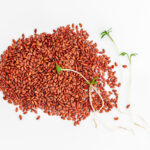Dear GreenSmoothieGirl for Arizona, part 4 of 4
Chris: What’s the best way to combat diarrhea?
GSG: If it’s chronic, it’s likely evidence of a degenerative colon issue. Start getting a probiotic-rich FOOD in your diet every day. (Not just a pill, which is inferior.) For example, kefir, yogurt, kombucha, homemade sauerkraut or other fermented vegetables. Eat whole foods, which have a lot of fiber, as you nurture your digestive tract so it can heal—you are not likely absorbing good nutrition, until you do. Eat a banana every day for the magnesium.
Angela: Is agave as bad as high-fructose corn syrup?
GSG: No. It’s been hyped that way by a few. There may be companies cutting corn syrup into their low-end product (but most don’t). I don’t think it’s really RAW, ever, despite the labels. It’s not a high-nutrition food by any means. I think you should use it very sparingly if at all, because it’s likely that agave’s alleged “low glycemic impact” has been oversold to us, the public. I am not a fan of using less processed, but still concentrated, sweeteners, except on a very limited basis if you feel you need treats and are trying to avoid the worst-of-the-bad villains (HFCS, refined sugar, aspartame). Currently my favorites are stevia (for green smoothies, etc.) and unrefined coconut palm sugar for baking. Agave is a distant third option, along with real maple syrup and raw honey.
O.A. Black: Do oxalates in spinach bind to calcium and cause kidney stones?
GSG: I have probably been asked this more than 1,000 times in classes and online. I believe the idea that we need to avoid green foods because of one compound in them (which are likely friend rather than foe) may have originated with Sally Fallon. Regardless, it has been passed along and passed along, and I have yet to read any evidence of it. Just claims. At first people would tell me they don’t eat raw spinach–just cook it–because they are terrified of the boogeyman OXALATES. Then people would tell me they won’t eat spinach COOKED, only raw!–because of the same boogeyman. Sigh.
Posted in: Whole Food













